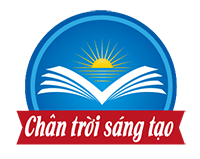Tiếng Anh 10 Unit 7 Project Global Success
Tiếng Anh lớp 10 unit 7 Project Viet Nam and international organisations
Hướng dẫn giải SGK tiếng Anh 10 Global Success unit 7 Viet Nam and international organisations Project bao gồm đáp án các phần bài tập trong SGK tiếng Anh lớp 10 Global Success unit 7 giúp các em học sinh chuẩn bị bài tập hiệu quả.
An international organisation Một tổ chức quốc tế
Work in groups. Do research on an international organisation and present your findings to the class. Your presentation should include: Làm việc nhóm. Thực hiện nghiên cứu về một tổ chức quốc tế và trình bày những phát hiện của bạn trước lớp. Bài trình bày của bạn nên bao gồm
What is the name of the international organisation? Tên của tổ chức quốc tế là gì?
When and where was it formed? Nó được hình thành khi nào và ở đâu?
How many member countries does it have? Is Viet Nam a member of this organisation? Nó có bao nhiêu quốc gia thành viên? Việt Nam có phải là thành viên của tổ chức này không?
What are the organisation’s aims? Mục tiêu của tổ chức là gì?
What are the current activities / projects of this organisation? Các hoạt động / dự án hiện tại của tổ chức này là gì?
What has this organisation done to help Viet Nam? Tổ chức này đã làm gì để giúp Việt Nam?
Gợi ý
On behalf of our group’s members, I’m going to report our result. We did research on an international organisation named World Health Organization (WHO). It was established on 7th April 1948 to coordinate health affairs within the United Nations system. As of January 2021, the WHO has 194 member states and Viet Nam has been its member since 17th May 1950. WHO’s aim is the attainment by all people of the highest possible level of health. In 2020, the organisation helped in controlling the world wide outbreak of coronavirus (covid-19). To Viet Nam, WHO was one of the first United Nations agencies to support the Vietnamese health sector directly since the end of the war and reunification of the country. The mission of WHO in Viet Nam is to support the Government to achieve universal health coverage with all people having access to high-quality health services, within the context of the country’s needs and challenges in transitioning to middle-income status. These are all of our findings on WHO, an international organisation.
Hướng dẫn dịch
Thay mặt các thành viên trong nhóm, tôi xin báo cáo kết quả nghiên cứu của chúng tôi. Chúng tôi đã nghiên cứu về một tổ chức quốc tế có tên là Tổ chức Y tế Thế giới (WHO). Tổ chức này được thành lập vào ngày 7 tháng 4 năm 1948 để điều phối các vấn đề y tế trong hệ thống Liên Hợp Quốc. Tính đến tháng 1 năm 2021, WHO có 194 quốc gia thành viên và Việt Nam là thành viên từ ngày 17 tháng 5 năm 1950. Mục tiêu của WHO là giúp tất cả mọi người đạt được mức độ sức khỏe cao nhất có thể. Năm 2020, tổ chức này đã hỗ trợ kiểm soát sự bùng phát toàn cầu của virus corona (COVID-19). Đối với Việt Nam, WHO là một trong những cơ quan Liên Hợp Quốc đầu tiên hỗ trợ trực tiếp ngành y tế Việt Nam kể từ khi kết thúc chiến tranh và thống nhất đất nước. Nhiệm vụ của WHO tại Việt Nam là hỗ trợ Chính phủ đạt được bảo hiểm y tế toàn dân, đảm bảo tất cả mọi người đều được tiếp cận các dịch vụ y tế chất lượng cao, trong bối cảnh nhu cầu và thách thức của đất nước trong quá trình chuyển đổi sang nền kinh tế thu nhập trung bình. Trên đây là toàn bộ kết quả nghiên cứu của chúng tôi về WHO, một tổ chức quốc tế.
>> Xem chi tiết tại: Talk about an international organisation that you know
Trên đây là Giải Tiếng Anh 10 unit 7 Project Viet Nam and international organisations trang 85. VnDoc.com hy vọng rằng bài Giải unit 7 lớp 10: Project trên đây sẽ giúp các em học sinh chuẩn bị bài tập SGK tiếng Anh lớp 10 kết nối tri thức unit 7 Viet Nam and international organisations năm 2025 - 2026 hiệu quả.










